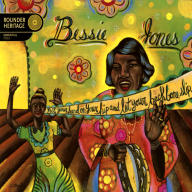Once the site of large plantations, the islands were seized by the Union in 1861, early in the Civil War. It was a strategic location from which the Union could easily blockade shipments that were headed to the rebellious Southern states. The original landowners had fled, leaving something in the neighborhood of 10,000 former slaves behind. These people became part of what was known as the Port Royal Experiment, a chance to see what fate would bring to the newly freed slaves. Since the Northern army had consistently rejected the enlistment of Black soldiers, the governing and security of the Georgia Sea Islands was handed over to locally enlisted citizens, meaning that for the first time in American history, African-Americans were allowed to protect themselves.
From the end of the Civil War until the '30s, these islands enjoyed a period of isolation from mainland life. During these years, a further cultural blend took place between the descendants of two sets of former slaves: African-Americans and a huge group of former slaves from the Bahamas who traveled there following the abolishment of slavery in the British empire.
The Sea Islanders, having suffered captivity, enjoyed the release of their bonds and created a music of endurance and freedom utilizing the unique dialect of the islands. There was a strong influence of the Bahamas in this music. And although all American folk music has been influenced by various types of African music, the African content of the Georgia Sea Islands is of a much purer variety; the result is a style of music unlike any other in America or the world.
Jones became a shining representative of this musical heritage, singing in a Bahamian accent accompanied by wild, outrageous African handclap rhythms. In the '60s, she helped form the Georgia Sea Island Singers, recording both with them and as a soloist. The material in both cases includes both songs and a selection of musical games for children that she recalled from her past. These performances brought audiences face to face with a distinct culture from another century. Jones published a book entitled Step It Down, which is a collection of such children's games as well as various stories from her life. Her performances, recordings, and educational programs earned many awards, including a National Heritage Fellowship from the National Endowment for the Arts. Like all great folk artists, her voice continues to be heard; even the techno artist Moby chose to sample her voice on his recordings. ~ Eugene Chadbourne, Rovi















